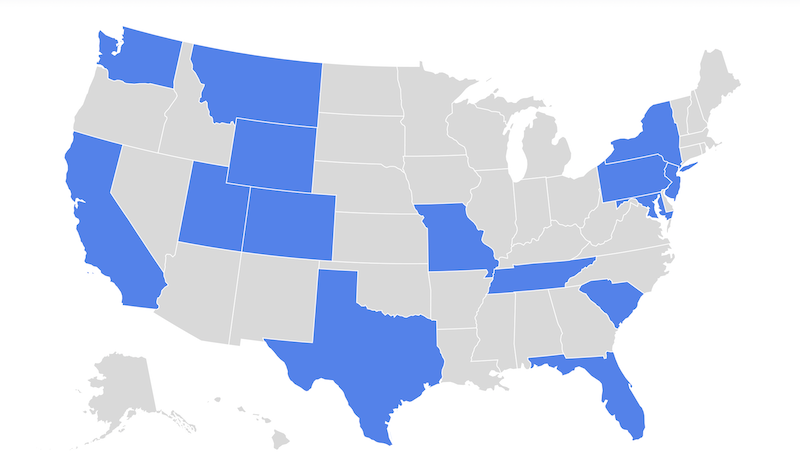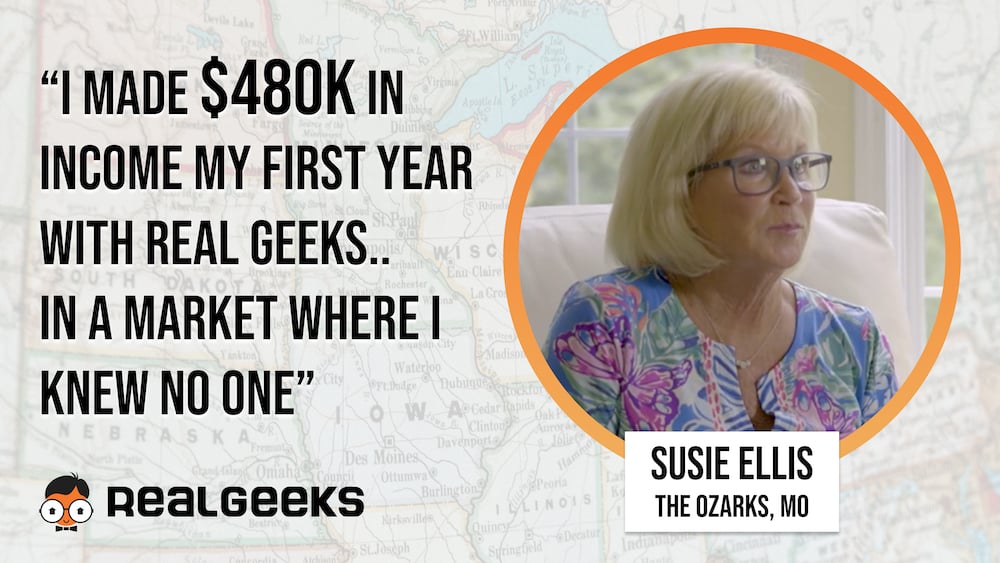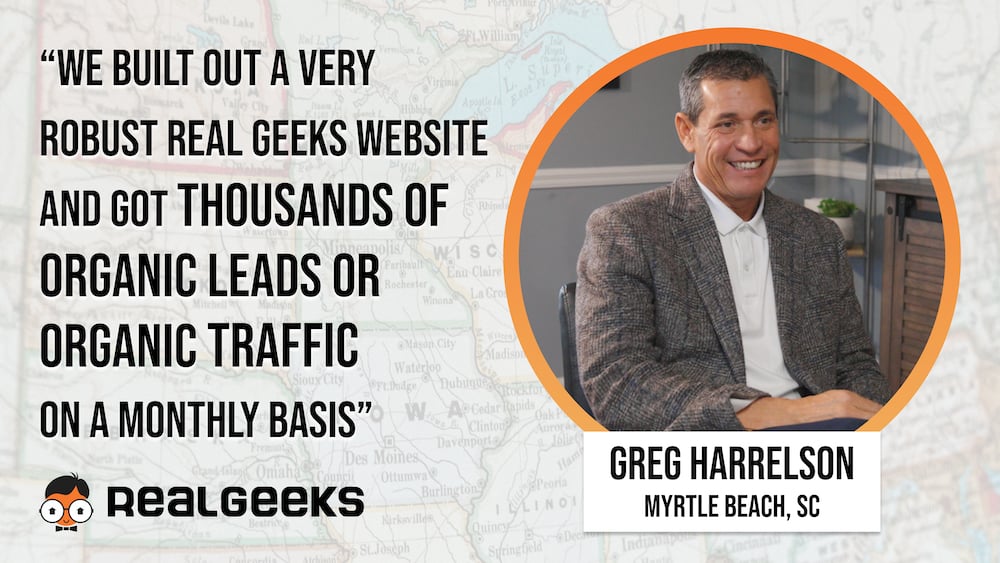
Role Playing for Realtors 101
In Keeping it Real, our podcast for agents looking to stand out in our industry, we're always bringing in guests who share with us unique and sometimes radical strategies for growth.
This episode was no exception.
Join us as we chat with Dale Archdekin, founder of SmartInsideSales.com, who breaks down why role-playing is probably the best thing you can do if you want to double the amount of contracts you close.
Role-playing for Real Estate Success
Getting on a call with someone else from your team where one of you pretends to be the lead, so the other one can test out his or her skills as a real estate professional.
If this sounds scary, then you should definitely do it more often.
Role-playing is a phenomenal way to:
- practice building rapport with a new lead and not sound too pushy, while also moving the sales process along
- master objection handling
- learn how to best articulate your value proposition, as in, why should a lead choose to sign an agreement with you rather than with another agent
"If you're a solo agent, you know how important these skills are," says Dale, "and if you have a team, you may not know that your agents are not having as many conversations as you want them to have because they simply don't know what to say or they're afraid of the outcome because they're ill prepared."
So, how do you go about this?
When Should Agents and Realtors Roleplay?
The first step to set up an effective role-playing session is to make sure that you're always recording your sales calls.
If you're not, then you won't know where you and your agents are running into trouble, and which skills you need to develop.
Perhaps you're great at explaining your value as an agent, but you start to break down when the lead gives you some resistance.
Or, perhaps your agents are great at objection handling, but they never get there because they come off too strong, and they haven't been able to establish a connection with the lead just yet.
Either way, you won't know if you're not recording your calls and the calls of your team.
For this, Dale believes that the best standalone dialer that works with RealGeeks is Mojo.
And he says: "there's nothing better than to give your ISA's recordings to the agent that they set the appointment for, because the agent will get much more from that recording in terms of context and personality than they'll get from the ISA's notes."
How often you roleplay depends on how new you are to the industry and how often you're generating.
For instance, Dale has his agents roleplay before they generate two or three times a week. But when he first got started, he was roleplaying every day to make sure he had the basics pinned down.
And sometimes, a seasoned agent might want to go back to roleplaying when there's a change in the market.
For example, now that we have to include buyer agency agreements and compensation as part of our conversations, it would be a great idea to have a few sessions of role-playing to figure out the best way to approach this.
"Something very common that will happen," Dale warns us, "is that when agents get great at roleplaying, they forget to account for being personable, doing small talk and essentially going off script."
This is important, because every conversation with a lead is totally unique, and scripts will only get us so far. Buying a home is an incredibly personal decision, – we cannot be robotic in how we guide the lead through that journey.
To this end, Dale started the Players Club a Slack channel so that agents can coordinate for role-playing with each other.
"We also have the Prospecting Room, which is an open Zoom meeting for our clients so they can support each other while they're lead generating."
The Three Types of Real Estate Role-playing
The three most common types of real estate role-playing that you can start incorporating within your business are:
Mastering the Basics
This one's especially important when you're first starting out as a solo agent, or when a new member joins a team. Even if they've been working in real estate for a long time, each agency has their own modus operandi, and their unique value proposition.
Therefore, it's important that agents align in the way that they carry out conversations, even if they end up naturally adding their own personal take to them.
Some of the most common role-playing sessions for mastering the basics will focus on:
- Perfecting an agent's introduction, as in, how they'll start a conversation with a lead
- Perfecting an agent's discovery, as in, how they get information from a lead to better guide them in their buying or selling process
- Perfecting an agent's grasp on objection handling, as in, how do they successfully address a lead's concerns or navigate opposition
- Perfecting an agent's closing, as in, how they finish a call so that the lead knows exactly what the next step is in order to get closer to a transaction
Developing Specific Skills
Role-playing sessions with the goal of developing a specific skill will come down to the areas where an agent is struggling, a new change in the market (like the post-NAR settlement stipulations), or a new point of value the real estate business wants to convey effectively.
In this case, Dale will generally do a lesson, explain what the purpose of this skill is, the parameters of it, in which scenarios an agent might use it, and then practice getting through the steps.
"Doing this with a skilled trainer or a mentor is hugely impactful because they can stop you and correct you, and change what you're doing and help you integrate this concept and this process within you. We'll even record it and go through it with you."
When it comes to specific scripts, Dale believes you should know as many skills as possible and use them as tools in your arsenal. Then, when you role play different situations, you'll become better at figuring out which of these tools will be more effective in any given scenario.
There are, however, two things Dale believes you should never do:
-
Wronging your leads: if they say something like "hey Dale, thanks for calling, but we probably won't be buying a home until next fall", you should never say something like: "Well you know Chris, prices now are great and we have no idea how interest rates are gonna go so you should really consider purchasing in now".
This is a no-no in role-playing, and for that matter, in a real sales call. You're a stranger to these leads. You haven't built any rapport yet, and you're contradicting the only information that they gave you.
Another example of this would be if your lead says they're going to be purchasing on their own without outside help and you answer with "that's not a great idea, you really want to be working with a professional on this, or you could risk putting your family in jeopardy".
Basically, Dale suggests we should avoid aiming for illogical closes, closing too fast, closing in the face of an objection.
-
Forgetting to build rapport:
Remember that your leads don't care about your business – they care about their lives.
Say that you're watching a recording from one of your agents, who called a lead to know if they were ready to start touring some properties. The lead answered something like: "oh man, it's going to be a little while, I got my second child on the way any day now", and the agent answered something along the lines of: "okay man, so when do you think you want to be moved into your next house?".
The agent just brushed off this lead's baby like it was a bump in his road, and missed a massive rapport building opportunity at the same time.
This is the perfect time for this agent to do some role-playing to improve their rapport-building skills.
Warming Up
Finally, the best role-playing sessions to warm up before a call are those that put the agent in a "difficult" position.
If they can successfully navigate these interactions, even if they're just role play, they'll feel much more prepared for the real thing.
Additionally, when you practice the "hard" parts of a sales call, since they're not necessarily going to occur, anything that's not as extreme will feel much more manageable, therefore giving the agent a sense of ease on the actual call, since they've already rehearsed the "worst-case scenario".
Two great "worst-case scenarios" to practice are:
"Getting punched in the face":
Getting pushed off the phone.
You'll get someone to play the role of the lead who doesn't want to be on the phone with the agent. The impersonator should tell the agent that they have to leave the call at least three times.
In this case, the agent's goal is to keep the conversation going and figure out a way to win the lead's attention and interest, find out as much as possible about the lead, and figure out a non-salesy way of pushing the relationship forward.
"This isn't for the agent to practice a script," Dale tells us, "the goal is to build some tension, get those neurons firing and get the blood flow going".
"I have an agent" scenario.
In this role play, the lead might say something like "Hey man, I have an agent, thanks", or "oh hey man, do you know X and Y? I've been seeing their billboards everywhere and I was thinking of giving them a call…"
There's a million variations of how this conversation might go, and it's up to the agent to identify how to navigate the situation as best as possible.
For example, this might be a lie the lead's telling you because they aren't sure if they're ready to buy. Or it might be true that they've been speaking to other agents but haven't signed anything yet. Or, perhaps, they have a buyer agency agreement, but there's still some value to be gained from this conversation.
Final Thoughts
We hope this session with Dale has opened your eyes to the massive impact roleplaying can have on your business.
Remember that Dale's 12 Week Intensive Course trains you on the best topics, structures, and strategies for effective role-playing. As part of his community, his team supports you Monday through Friday with classes and content, and a once a week accountability meeting.
Real Geeks is a highly efficient and effective lead generation and conversion solution for cultivating, capturing, and managing leads at any stage of the home buying or selling process.
Drive traffic, capture leads, nurture opportunities, and close more transactions with a robust CRM, fully integrated custom IDX website, and marketing solutions for agents and teams of any size.
Real Geeks is one of the best lead generation and management platforms available, but don't just take our word for it – hear from customers loving their experience with Real Geeks →





/Blog/Thumbnail%20-%20Introducing%20Geek%20Verified%20Leads.png)
/Blog/Thumbnail%20-%20Jan%20%E2%80%9826%20%20%20Maintenance%20%26%20Quality%20Updates.png)
/Blog/Real%20Geeks%20Expert%20insights%20Live%20Jan%2014%202026%20Andy%20Mulholland%20Blog%20Thumbnail%202.png)